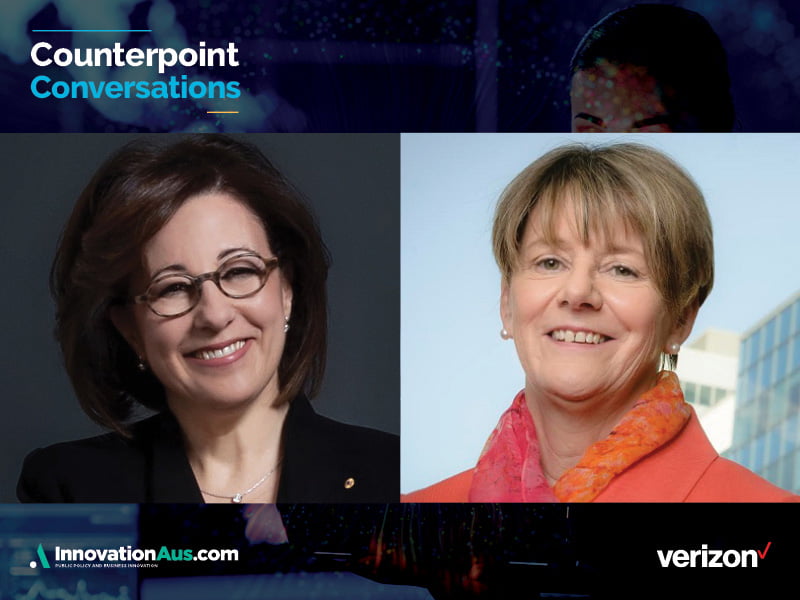Taking people with you on the journey to cultural change is the key to transformative projects the generate lasting and meaningful shifts. This is the lesson that both Josephine Sukkar and Patricia Kelly would like the leaders of today and tomorrow to heed at this moment of cultural upheaval.
Ms Sukkar is the principal and non-executive director of Buildcorp, and the first female chairperson of the Australian Sports Commission. Over her decades in the sciences, construction and sport, she has witnessed immense cultural change.
“Cultural change did happen, but it took time, and it was successful when it was done carefully,” Ms Sukkar said on this week’s Counterpoint Conversations podcast.
She says that it can be challenging for the new generation of leaders to reconcile the fast-moving pace of change in modern life with the slow process of true, permanent cultural change.
“Cultural change that is done well and sticks – in my observations – comes from the type of leadership that uses language carefully and has effective conversations, because there are a number of people to bring along on the journey.”
Ms Kelly is former director general of IP Australia, a former chair of the Square Kilometre Array Council Preparatory Task Force, and the current chair of the Australian Research Integrity Commission.
She recalls that her first job was with the public sector back in 1975 only a handful of years after the demise of the notorious ‘marriage bar’, which prohibited the employment of married women within the civil service.

“It wasn’t surprising that there weren’t many women leaders, but the sorts of behaviours that were accepted back then are just unthinkable today,” she says. “Sometimes I think we underestimate how much change has happened, and how far we’ve come.”
But she says that maintaining momentum through an often-slow process of change is a “big challenge”.
“Sometimes I feel we’re taking two steps forward and one step back,” Ms Kelly says. “It’s important that people do keep pushing and keep that momentum up.”
Ms Kelly is concerned that there is an overfocus right now, particularly in our public sector, on implementation over long-term strategic planning. “Nobody else does that,” she reflects, “political cycles are short.”
She is also worried about what she sees as an over-reliance on consultants in the public sector draining vital skills from their ranks and setting the whole system up for problems down the track.
She says it is vital to maintain strong strategic planning to overcome inevitable future obstacles.
Ms Sukkar agrees. She reflects that resilience and the ability to change to meet whatever challenges arise is a core value for businesses that will be successful long-term.
In her career in small business, she says there have been four separate downturns and each was entirely unique with its own set of challenges.
“I’d like to say we know how to surf the wave of an economic downturn because we’ve done it three times before,” she says. “The reality is the responses have been totally different each time.”
While there are core elements of any business that are absolutely non-negotiable – product quality, for example – if you’re going to weather downturns and change you need to know your flex points and be able to roll with the punches.
The Counterpoint Conversations podcast series was produced as a partnership between Verizon Business Group and InnovationAus.com.
Do you know more? Contact James Riley via Email.
